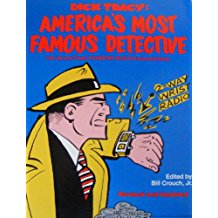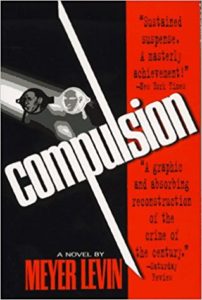There’s no such thing as “flyover country” — except in the minds of careless or ignorant  people who ought to know better. For instance:
people who ought to know better. For instance:
- Jazz lives throughout the US and the world, not only in New York City;
- Illinois presidential race voters chose Hilary Clinton by a wide margin (due largely to Democratic bastion and jazz hub Chicago) although the man who beat her nationally does not seem to have much on-the-ground experience with anywhere except his own properties,
- and yes, the capital of the Midwest has crime fiction writers to boast of, too, despite rumors to the contrary.
Here’s what stirred me up about this: “Chicago has a great heritage of crime, but not much in the way of crime fiction,” Eric Beetner, LA-based author, goofed up big-time in his opening remarks at the first Murder and Mayhem conference on crime fiction held in downtown Roosevelt University on Saturday, March 11. He meant, of course, to be funny, kicking off a day of well attended and much better informed panel discussions. But it culminated, after all, in a discussion between Sara Paretsky, whose pi V.I. Warshawski lives near Wrigley Field, and William Kent Krueger, author of mysteries set in northern Minnesota, often around Native American reservations.
I like Beetner’s Rumrunners, a quick and dirty read and I suspect his comment was based on little thought (“I only had so much time,” he told me when I called him on it). BUT! Chicago has been home of crime writers and site of their works from Theodore Dreiser, W.A. Burnett, Ben Hecht, Richard Wright, Nelson Algren, Meyer Levin, Jonathan Latimer, Chester Gould  (the man who invented Dick Tracy!) and Iceberg Slim to Scott Turow, Erik Larson, author and editor Stuart Kaminsky and of course Ms. Paretsky, who co-founded the crime writers’ organization Sisters in Crime.
(the man who invented Dick Tracy!) and Iceberg Slim to Scott Turow, Erik Larson, author and editor Stuart Kaminsky and of course Ms. Paretsky, who co-founded the crime writers’ organization Sisters in Crime.
Chicago-oriented authors who spoke, further confirming that writing in or about this woefully gun-laden city plagued by income inequality and racial tensions, is still vital, included Michael Harvey, Sean Chercover, Danny Gardner, Marcus Sakey and Alverne Ball (full schedule of speakers here).
Within the conference discussion ranged over such issues as levels and degrees of violence, how to work with historical fiction, use and abuse of genre conventions, etc. A  business-oriented group, including Chicago agent Danielle Egan-Miller, editorial director of Crooked Lane Books Matt Martz and book/entertainment publicist Dana Kaye (who co-produced Murder and Mayhem with author Lori Rader-Day). Another unusually focused on the value of libraries to authors, for direct sales, publicity platforms and extending books’ lives. The Book Cellar sold works by panelists to the 200-some attendees — readers and writers, clearly.
business-oriented group, including Chicago agent Danielle Egan-Miller, editorial director of Crooked Lane Books Matt Martz and book/entertainment publicist Dana Kaye (who co-produced Murder and Mayhem with author Lori Rader-Day). Another unusually focused on the value of libraries to authors, for direct sales, publicity platforms and extending books’ lives. The Book Cellar sold works by panelists to the 200-some attendees — readers and writers, clearly.
There’s lots of crime in Chicago — as well as political intrigue, sports action, social change, artistic creativity — and quite a bit of crime writing, too. It’s been historical, literary, theatrical, cinematic, hard-boiled, cozy, procedural, legalistic, written by insiders and outsiders. There’s bound to be more.
Don’t assume nothin’s happening between coasts or beyond where you are and mostly hear about. What goes on in the heart of the heart of the country otherwise may come as a surprise.

